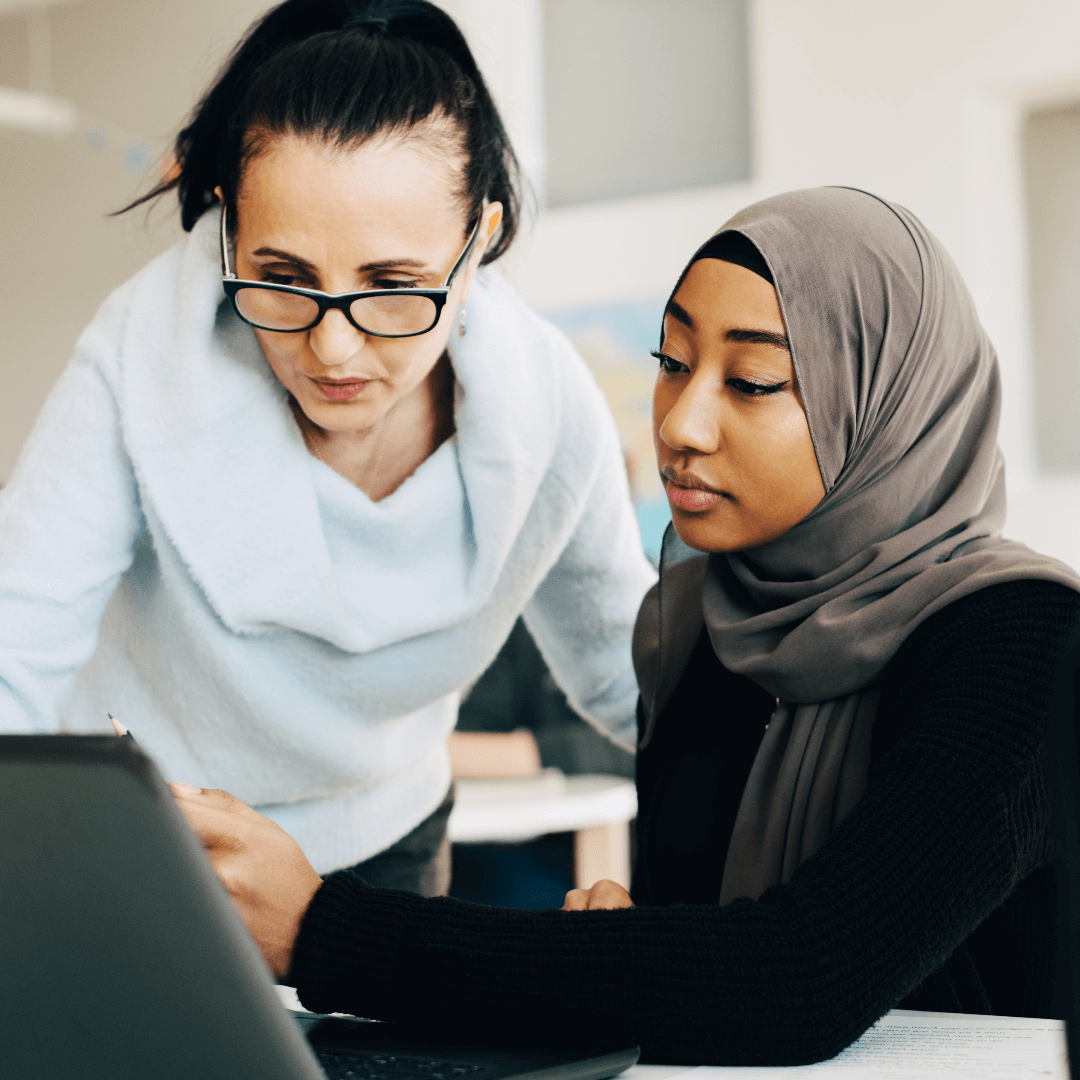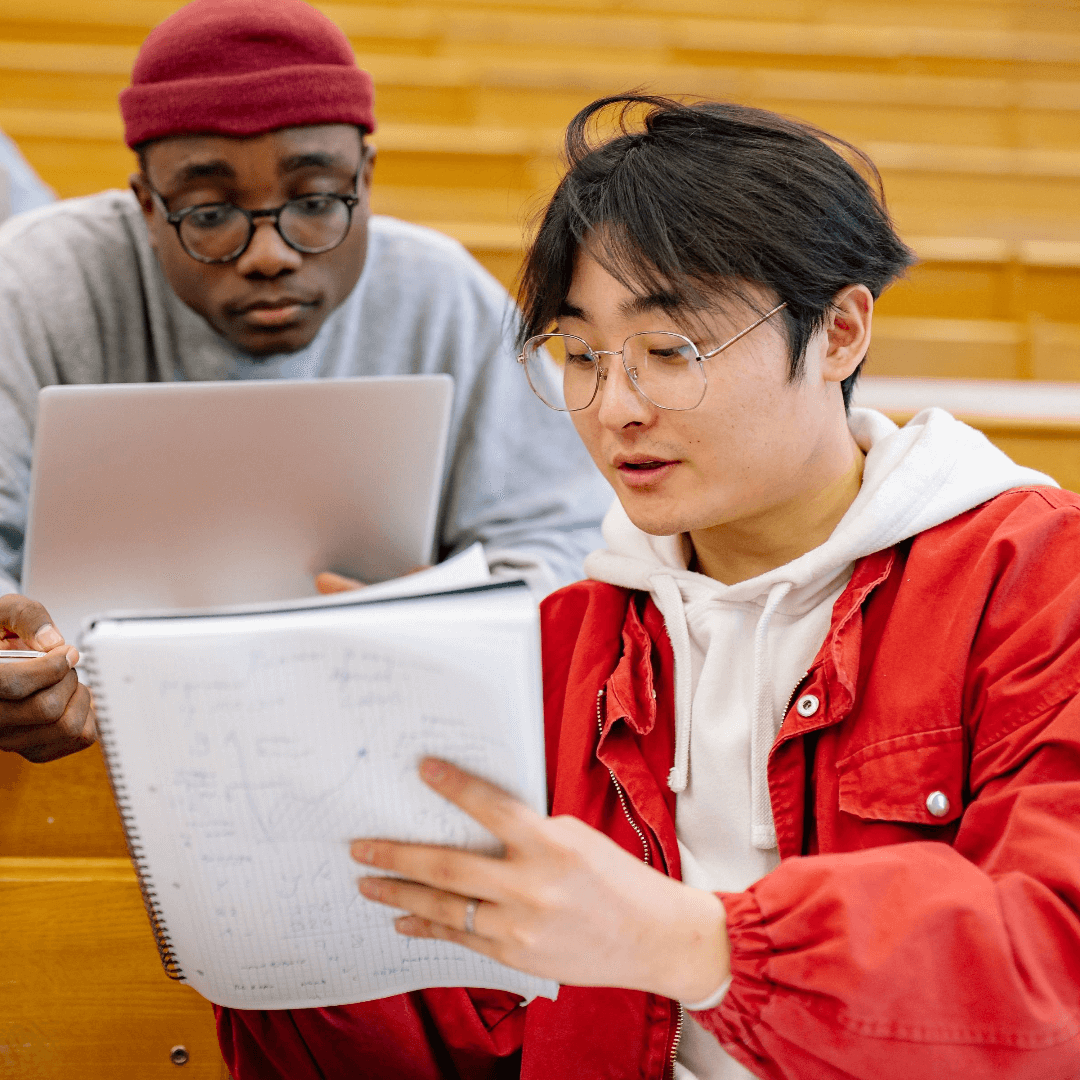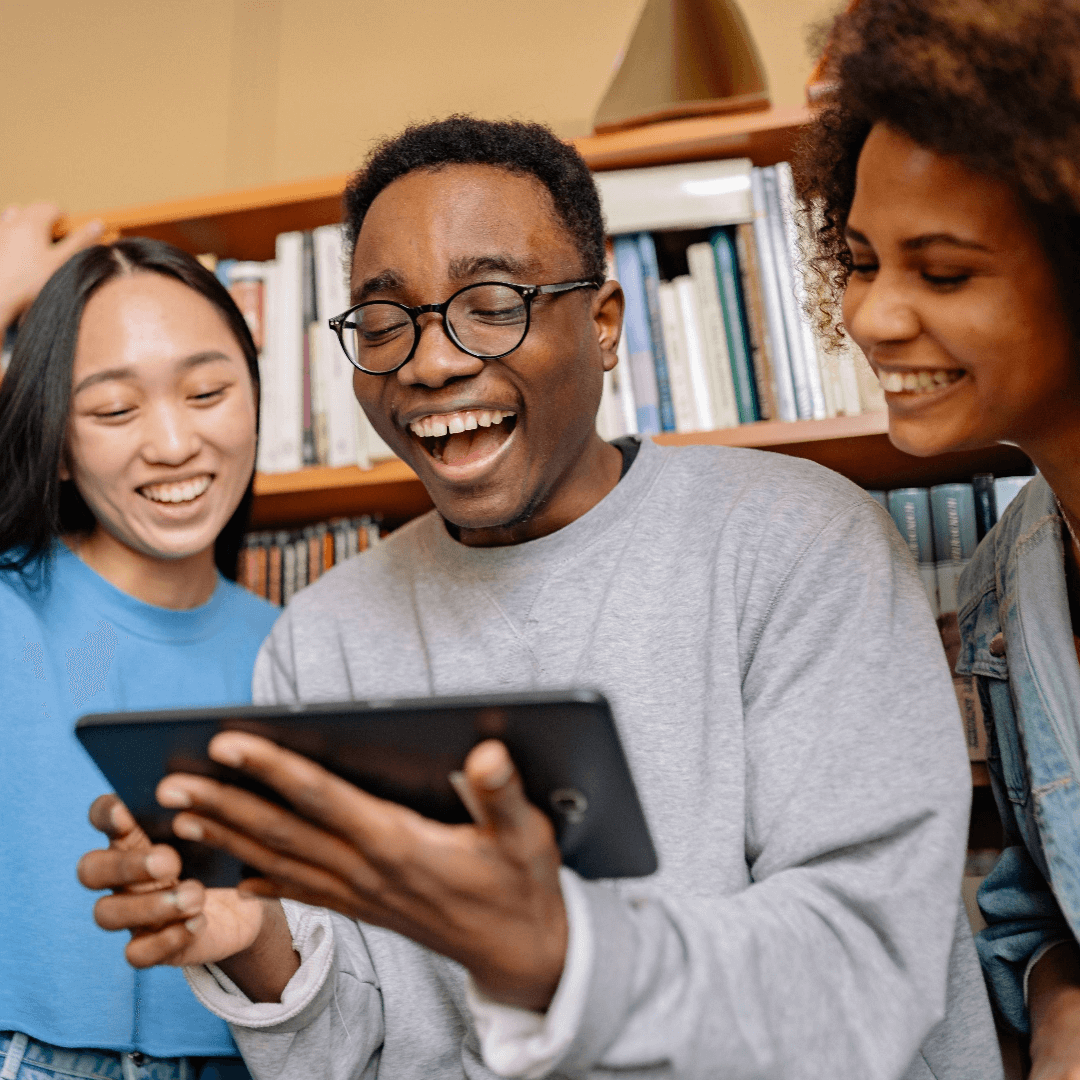
At Course Hero, we are committed to supporting educators who are pushing boundaries, embracing innovation, and reshaping the classroom experience for their students.
That’s why I am absolutely thrilled to announce the recipients of the 2023 Course Hero Teaching Grant. These remarkable educators, all 52 of them, have been awarded a total of $100,000 to fuel their work in integrating digital tools into their pedagogy.
From coast to coast, from urban centers to rural communities, these teachers are leading the charge in revolutionizing education and preparing our students for the challenges and opportunities of the digital age.
I encourage you to dive into their project summaries below and be inspired by the creativity and innovation of your fellow educators.
Stay tuned this Fall, when we will discover the outcomes of these inspiring projects being led by our Classroom Changemakers.
Sincerely,
Sean Michael Morris
Vice President, Academics
Course Hero
2023 Course Hero Classroom Changemakers

Melissa A. Murphy, Bastyr University
Health science students will be actively using ChatGPT to track the progression of their learning objectives and develop content for assignments. The students will gain AI-literacy by testing the tool, challenging its capabilities, and analyzing the information it’s producing.

Rachel Allen-Mchugh, Drake University
Health science students will design an educational booth aimed at promoting the well-being of college-age students. Additionally, they will launch a social media campaign to increase awareness and enhance media literacy skills. The project will delve into eight key aspects of well-being, addressing issues such as anxiety, depression, and thoughts of suicide.

Letora Anderson, University of Texas at Arlington
Architecture students will develop a Geographic Information System (GIS) map and conduct an analysis of a local area prone to flooding. This area presents challenges specifically for a vulnerable demographic. The students will work in collaboration with city officials and technicians to communicate their findings, preparedness procedures, and safety measures to the local community.

Yelena Bailey-Kirby, College of Southern Nevada
English students will create an online publication that prioritizes inclusivity and accessibility. This publication will offer various options for written content, images, videos, and audio to ensure it can be easily accessed by individuals with disabilities. The students will cover a wide range of topics and will particularly focus on celebrating members of underrepresented communities, such as those identifying as LGBT+, women, people of color, and individuals with disabilities.

Andrea Boggio, Bryant University
Students in a health law class are developing a digital storytelling artifact, such as a map, an infographic, or a simple app to present a health-related “story” demonstrating the role of law and regulation in shaping Americans’ health and health outcomes. At the end of the semester, the students will share their findings with the campus community in an event aimed at enhancing student data literacy.

Tiana Bosley, Olivet College
Mathematics students will collaborate to develop online video tutorials for college calculus as it relates to real-world examples. The students will be developing video editing skills and learn the course material by assuming the role of teachers.

Alba Brugueras-Fabre, Universidad del Sagrado Corazón
In a Sustainability and Economic Development course, students are creating a recurring podcast that centers on analyzing Puerto Rico’s economic progress. To accomplish this, students will collect pertinent data regarding Puerto Rico’s economic growth and development. They will conduct research and delve into diverse digital sources, including economic indicators, literature reviews, press articles, and interviews.

Dominique Charlotteaux, Broward College
In an Introduction to Educational Technology course, pre-service teachers will complete virtual service learning with a local public school and document their service-learning experiences in a video documentary. They will serve as technology coaches remotely training or mentoring staff and students to proficiently use different technology tools or as technology specialists developing online technology projects designated by the school.

Lilian De La Torre, Santa Ana College
Students and their instructors at an HSI community college will be collaborating to build an English-Spanish Digital Language Lab to prepare students for their careers as court interpreters. The students will be developing their digital literacy skills by practicing in a highly-interactive environment, while learning how to serve their Hispanic community.

Suzanne Delle, York College of Pennsylvania
Humanities students are developing an interactive multimedia game based on dramatic plays that allow them to study and analyze critical socio-political historical issues. They will research the historical period, develop content, and test the game with their classmates.

Ron Amber Deloney, Paul Quinn College
The project “Gifts of the Humanities: A Virtual Rendition of the Chitlin Circuit” involves students delving into the lives of Black performers active during the 1930s to 1960s. This exploration will encompass topics of race, gender, and class. Through the Roblox gaming platform, students will immerse themselves in an interactive environment. Here, they will learn the skill of critically analyzing media and visual portrayals of racial theme

Sean DiLeonardi, University of Pittsburgh
Using the program Twine, English students are developing an ethical, purpose-driven game that is interactive and text-based. Students will experiment with examples of digital games that address humanistic issues (such as refugee crises, climate change, and mental health); they will learn how to assess the strengths of these examples and the techniques they use to turn complex issues into playable scenarios capable of challenging or educating players.

Kaitlyn Dykstra, St. Bonaventure University
Biology students will research a genetic technology of their choosing and prepare a multimedia online presentation as a resource for the community to learn more about advances in genetic technologies. The students will be informing the public on the applications, limitations, and ethical considerations of technologies used for genetic engineering and DNA sequencing technology.

Kingsley Ekwemalor, North Carolina Agricultural and Technical State University
In an Agricultural Genetics course, students will participate in virtual lab simulations, performing experiments and practical tasks related to agricultural genetics. This hands-on approach allows them to better grasp complex concepts and gain practical skills. As students perform experiments within the virtual lab, data will be collected to provide immediate feedback on their observations and learning outcomes so that students can track their progress and identify areas for improvement.

Diane Elliston, University of Colorado Boulder
During the Design for Social Innovation course, students will investigate ways to address social issues, public service enhancements, sustainability, and accessibility through effective communication strategies and program development. The course will involve the exploration of Augmented Reality (AR) and Virtual Reality (VR) tools to bolster innovative ideas aimed at bringing about positive societal change.

Denise Femia, La Salle University
Chemistry students will develop interactive digital presentations that explore how organic chemistry is used to solve real-world problems. The students will be focusing on work done by researchers from diverse backgrounds and gain understanding of how race, gender, and cultural background affects work in scientific context. The class will culminate with a media collection “Highlighting Diversity in Modern Inorganic Chemistry.”

Claudio Freitas, Purdue University Fort Wayne
Engineering students will employ the MATLAB programming language to detect, create models for, and scrutinize engineering challenges. Working together with their instructors, they will utilize their projects to construct an online repository. This repository will foster ongoing peer-centered learning and knowledge sharing.

LaDawna Goering, University of Texas, Texas Medical Center Cizik School of Nursing
Nursing students will develop hands-on clinical skills in dementia care through a virtual simulation experience, and gain increased confidence and competence toward older adults with dementia. The students will wear sensory impairment goggles, headphones, and gloves creating visual disturbance, sound interference, and tactile changes designed to create a deeper understanding of their patients.

Sylviane Greensword, Texas Christian University
Interdisciplinary students will explore afrofuturist digital art and productions and create digitally illustrated ethnographic or cultural commentaries. During the course, the students will examine and assess the connections between technology, culture, and race.

Jessica Harbaum, Lehigh University
Humanities students will engage in research related to equity in human health, digitally documenting their research, hosting a podcast based on their findings, and creating health-related PSA tutorials. Collaborating remotely with a team in Ecuador, the students will explore diversity and multiculturality in regard to critical health issues.

Dakota Horn, Bradley University
The “Digital Conflict Project” is a student-produced digital toolbox, including videos, podcasts, infographics, and an assortment of digitally created resources aimed at dealing with conflict resolution and communication challenges. The students will be distributing these resources to the campus community in collaboration with the University’s administrative team to encourage positive learning in a digital setting.

Andrea Imafidon, Tuskegee University
First-generation social work students will conduct a survey study and produce a digital resource kit for their campus focused on digital inclusiveness and addressing limited access to learning technology. The students will communicate their findings with the college administration to help promote accommodation for nontraditional students.

Lori Jakiela, University of Pittsburgh at Greensburg
Writing students are creating digital storytelling projects to support cultural preservation in the Rust Belt and Appalachia. Using film, still photos, audio interviews, and creative texts, the students will immerse themselves in their local community and produce digital content for community preservation efforts and local historical societies.

Alastair Kocho-Williams, Clarkson University
Humanities students are creating content for a YouTube Channel called Playing With the Past, addressing tabletop games as a means for understanding history, conflict, and politics as class assignments. Students will engage with tabletop games and demonstrate to their audience in video podcast format how a given game contributes to an understanding of a subject or aspect of the past or present, creating lively and accessible visual content that will foster audience engagement.

Stephanie Kratz, Heartland Community College
“Snapshots of Burnout Management” is a digital resource kit featuring microlearning lessons for Liberal Arts and Social Sciences faculty on managing stress related to faculty burnout. Using the 7taps micro-learning app, mini-lessons will be sent to faculty weekly, including case studies, invitations to engage with colleagues, quick strategies for immediate implementation, videos, and visuals.

Yu-Tung Kuo, North Carolina Agricultural and Technical State University
Engineering students will develop fully functional interactive VR games, undertaking user research and needs analysis, identifying objectives, problems, and solutions, VR development training, VR game design, VR prototyping, user testing and evaluation, and reflection and refinement.

Jamie Ludwig, Drexel University
Chemistry students are collaborating to build an interactive website for learning key concepts in organic chemistry. Using design software, they will illustrate and explain challenging concepts and present them as an open education resource. The project outcomes will be piloted as a teaching resource with local Philadelphia science teachers.

Yaisa Mann, Langston University
English students are producing a documentary on body image to analyze agency and identity through Black literature and film. The students will produce the documentary alongside a digital resource book.

Seena Mathew, University of Mary Hardin-Baylor
Biology students are creating an educational module on the effects of alcohol, smoking, and/or marijuana on brain processing, bone development, and growth. Students will evaluate digital resources and curate them alongside infographics to be shared with the campus community.

Kimberley McHale, Heartland Community College
Mathematics students will collaborate to test the usability of AI for learning mathematics. They will investigate practical uses for ChatGPT (checking solutions, ideas for approaching a problem, seeing an example) as well as negative experiences (incorrect information, copying a solution that they do not understand). Their findings will be curated via a digital presentation.

Lakindra Mitchell Dove, Portland State University
Social work students are analyzing digital platforms used for telemental health services. As part of the projects, they will be assessing the feasibility of digital tools, noting their benefits and challenges and exploring ethical considerations associated with digital services for social work practice.

Wilson Miu, Augsburg University
History students are producing video and audio series on Chinese global influence via self-paced digital learning. They will learn to utilize Chat GPT and Google Bard for responsible content creation and develop materials for a variety of video platforms, including YouTube Shorts, TikTok, and Twitch.

Maira Monteiro, Seattle Pacific University
Engineering students are building educational games using the Python programming language, catering to different skill levels. The project will involve documenting the functionality, features, and instructions for the educational games, including defining game concepts, conducting analyses, planning data structures, implementing the games, and performing thorough testing and debugging.

Alexis Morin, Western New England University
Occupational therapy students will utilize digital storytelling to build a narrative on an individual’s experiences regarding the impact of mental health on their daily functioning and/or explain a mental health topic. They will collect and design digital narratives which wil be shared with the wider community.

Timothy Nicholson, Farmingdale State College
History students will use recently digital databases and sources to construct biographies of victims impacted by slave trade, colonialism, or the Holocaust, analyzing life experiences in terms of the intersection of class, gender and racial oppression. Students will then create interactive web pages that bring their subjects to life and make them accessible to the public.

Christopher Opperman, San Juan Community College
Fire science students will be utilizing Virtual Reality to experiment with stimulated hazardous environments and learn different response actions. The project will supplement hands-on training and allow students to practice in a safe environment.

Susan Ortiz, Warren Wilson College
Sociology and anthropology students will design experiential learning activities and explore diversity, equity, inclusion, and belonging. This class will team up with a local non-profit, Project Dignity, whose mission is to provide period products to homeless and low-income individuals, or victims of domestic abuse.

David Reeping, University of Cincinnati
Engineering students are designing household gadgets for real-world clients to learn large language models. Throughout the process, the students will learn how to utilize AI tools to aid the design and review process.

Cassandra Reyes, West Chester University
In my Animal Cruelty criminal justice elective course, students gain experience with the legislative process on the federal and state level as it relates to the development of anti-animal cruelty statutory laws. Using TikTok videos campaigns, they’ll raise awareness for pending federal and state anti-animal cruelty legislation.

Miriam Romero, Norwich University
The project “Exploring Medical Health in Latin America” will allow medical Spanish students to learn from Latin American health professionals and gain language skills. Combining digital interviews, observations, interactive language platforms, and databases, students will research and get hands-on language practice.

Melinda Shiels, Evangel University
Marketing students will gain design and project management experience working with real clients outside campus. They will use project management software for tracking tasks and design tools to create digital bundles for their clients, including Facebook posts, Instagram Ads, website content, digital images, and promotional files for print.

Stephanie Smith, Virginia Tech
My Public Relations capstone class will lead a full public relations campaign for a real-world client. Students will be working with the Blacksburg Police Department on several public safety initiatives that need attention among a student audience, including ridesharing safety, street drug awareness, mental health/wellbeing, situational awareness, and safety.

Stephanie Speicher, Weber State University
As part of the project “Seeking Solutions: Collaborative Conversations” teacher education students will create a podcast series featuring innovative teachers. The students will observe and interview teachers to explore strategies for student-centered learning.

Nathan Stephens, Illinois State University
Social work students will create a PSA campaign to challenge discrimination, biases and/or stereotypes associated with socially marginalized groups. The videos will be shared on the School of Social Work’s Instagram page and help students become aware of how their social media can be used for advocacy and education in an effort to promote social justice.

Cristina Sullivan, Collin College
Humanities students are creating PSA campaigns to support the work of an organization or business from their community. The class will experiment with digital boards to collaborate and share feedback on the projects.

Aja Sullivan, Goldfarb School of Nursing at Barnes Jewish College
“What I Wish You Knew” is a video and podcast series aiming to enhance understanding, empathy, and communication between psych-mental health nursing students and psychiatric clients. Participating nursing students will receive training in communication, active listening, and ethical considerations to ensure respectful conversations. Their content will be shared by local mental health organizations and used as a learning resource in the nursing curriculum.

Tasha Thomas, University of South Carolina Upstate
Humanities students are developing a podcast series dealing with the challenges of first-generation college students, addressing time and money management, academic success, social interaction during and outside of class, and campus engagement. The series will be shared with their local campus community.

Stephanie Turner, University of Wisconsin-Eau Claire
English students will develop a research protocol to analyze the question-answer behavior of AI tools and understand how AI can be used to foster deeper learning and undergraduate research. The findings will be presented at the campus annual research showcase.

Carmen Villavicencio-Hein, New York University
Social work instructor is utilizing AI tools to develop a targeted curriculum for social work students aimed at developing skills for working within urban school districts. The students will experiment with simulation scenarios to determine areas of support in schools, informing program proposal/development, conducting mental health assessments, and developing intervention strategies.

Hapsatou Wane, Georgia Southern University
Humanities students are creating story maps for the project “Becoming American” to document the impact of literature on the social perspective toward immigrants. The students will collaborate with local immigration non-profit organization the Office of Global Engagement at their campus to research and share their content.

Anita Weisburger, Coppin State University
Students will conduct a series of experiments using temperature, voltage and motion sensors as a part of their training as science teachers. They will develop a digital teaching toolkit with lesson plans, data, graphs, and visual materials for teaching.

Fallon Willoughby, Southcentral Community and Technical College
Students are creating a social media campaign to address key information for student success aimed at new and current college students. The class will be collaborating with the campus marketing team to develop and distribute the content.






